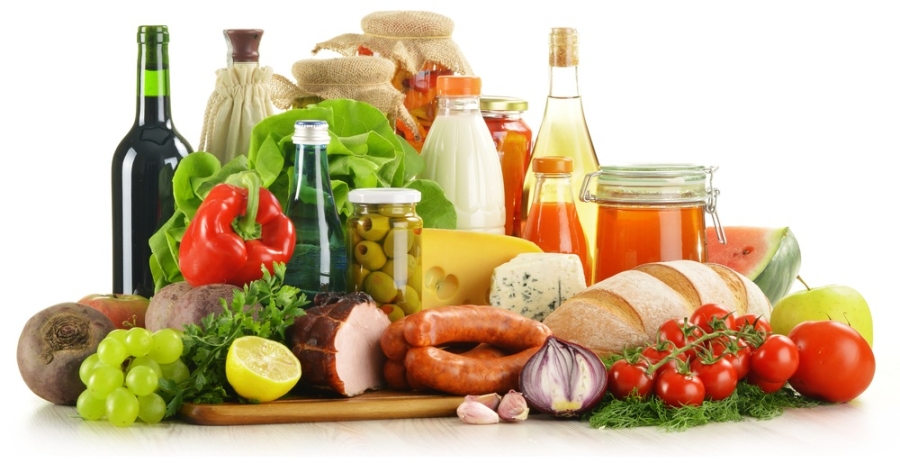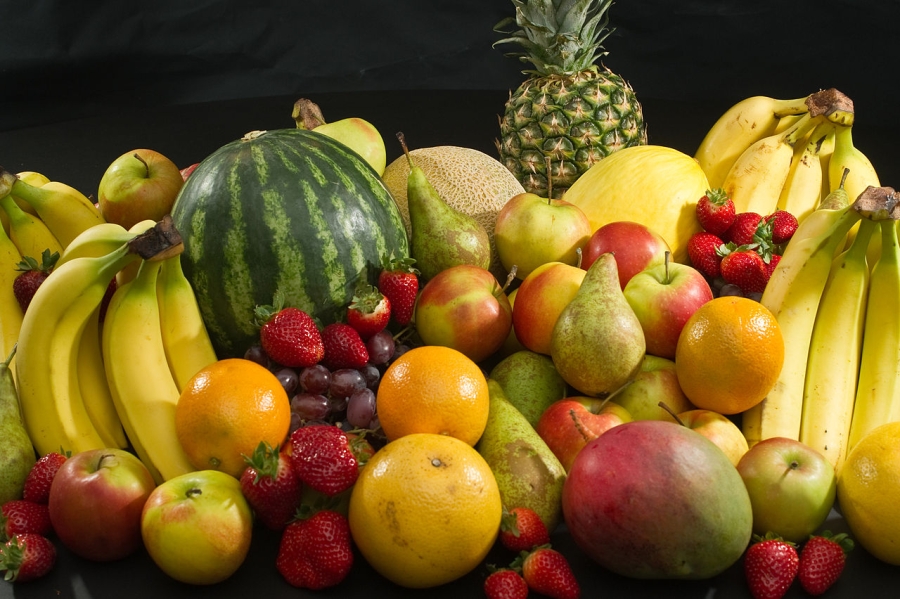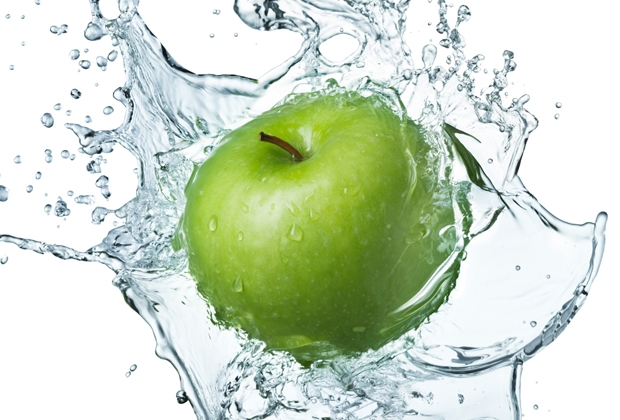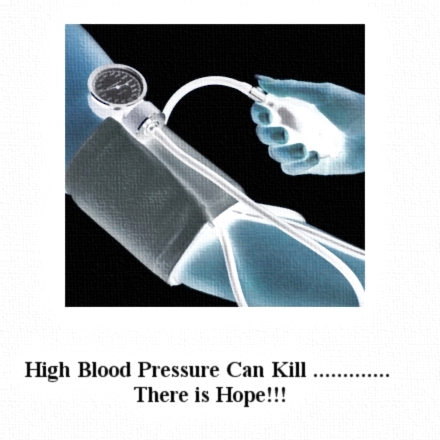Nutrients in diet

Nutrients in diet
Carbohydrates
Carbohydrates are the most important source of energy. They play major roles in the working process of the immune system, fertilization, pathogenesis, blood clotting, and development. Most importantly, carbohydrates are the most readily available source of energy in human body. Chemically, they're organic compounds ending in suffix '-ose'. Examples, sucrose (a.k.a. Common sugar), Fructose (a.k.a. Fruit sugar) and starch. In human body, Carbohydrate are used as primary source of fuel to generate energy to be used in various life processes.
There are two types of carbohydrates: Simple and complex. Common sugar, sugar in fruits is an example of simple sugar. They're called simple because they're more readily usable form of carbohydrates.
Starch is an example of complex carbohydrates. They're called complex since they need to be digested (broken down) into more usable glucose.
We obtain most of our carbohydrate in the form of starch. Food sources for carbohydrates include potato, rice, spaghetti, yams, bread and cereals. This starch is digested to produce glucose. Blood transports glucose to body cells which use it to generate energy.
Carbohydrates, simple or complex, are best usable when combined with vitamins and fiber. Therefore it is recommended by doctors to use un-refined foods like whole-grain breads and fresh fruits instead of processed/refined sources like flour, white rice, simple sugar and/or preserved fruit juices.
RDA: To reduce risk of heart disease and obesity, World health organization recommends that upto 55% of our dietary energy should be obtained from carbohydrates. Simple sugars should be avoided or kept to a minimum.
Proteins
Proteins are required for growth and repair. Proteins are very large biomolecules made of smaller units called amino-acids. In its natural form they cannot get directly into our blood. So, they're digested into readily usable amino acids by our digestive system. There are over 20 different amino-acids. Our body turns the amino-acids back into protein when required. Our cells get their amino-acids from the blood. Many proteins are enzymes that catalyze biochemical reactions and are vital to metabolism. Apart from playing structural roles in muscles, proteins also play an important role in cell signalling, immune responses, cell adhesion, and the cell cycle.
Proteins can also be used as a source of energy. When excess amino-acids are removed from the body the Nitrogen is excreted as a chemical called urea. The liver makes urea and the kidney puts the urea into our urine.
Dietary sources of protein are meat, poultry, fish, eggs, dairy products, nuts, seeds, and legumes like black beans and lentils.
RDA: Doctors recommend 0.8 grams of protein per kg of body weight for less active individuals and 1 - 1.5 grams per KG body weight for those who exercise.
Fats
Fats are also organic compounds. Fats are used as a source of energy and infact, are give more energy compared with carbohydrates. they are, however, not as readily usable as carbohydrates and thus, become the second choice for energy which means they are only utilized under special circumstances when body is not able to get enough energy from available glucose. Fats are also stored beneath the skin helping to insulate us against the cold. Apart from dietary sources, any excessive carbohydrates and proteins are converted into fat and stored in fat cells. If you eat too much carbohydrate and protein, you will convert some of it into fat, so you will put on weight. This is why you must balance the amount of energy containing foods with the amount of energy that you use when you take exercise. Chemically, fats are first broken down into glycerol and free fatty acids. Glycerol is converted into glucose by liver.
Apart from being used as a source of energy, fats are also required for body for absorbing fat soluble vitamins(Vitamin A, D, E and K). Plus, there are some essential fatty acids which are supplied through dietary fat. Fats also play a vital role in maintaining healthy skin and hair, insulating body organs against shock, maintaining body temperature, and promoting healthy cell function. Fats are also used to stock toxins in order to avoid any damage to body cells and organs. These toxins are stored in body until they're metabolized and/or removed via excretion, urination, sebum excretion and hair growth.
By now you must be thinking that if fat is so important why do they have a bad reputation. The answer is - not all fats are bad. Some are good because of their beneficial properties.There are three types of fats: Unsaturated, Saturated and trans fats.
Unsaturated Fats are found in plants and fish. They're considered very good for cardiovascular health since they lower the bad cholesterol in blood.
Dietary sources: They are found in Olive oil, peanut oil, canola oil, nuts and salmon.
RDA: As per FDA recommendation, unsaturated fats in diet should be limited to 30% of the calorie intake (not 30% of the meal size, fats contain high calorie so small amounts are good).
Saturated fats are found in meat and other animal products like butter, cheese and milk. Typical dietary sources are butter, coconut oil and ghee. These fats are the ones with a very bad reputation for hurting the cardiovascular health. Many argue that cold pressed virgin coconut oil is good for heal. However, health organization include WHO strictly advise reducing the consumption of saturated fats and limiting its intake to 7% of the total calorie intake.
In a separate set of scientific studies, it was concluded that fresh pressed virgin coconut oil & palm oil reduced the risk of coronary heart disease and heart attack in postmenopausal women and portugese men respectively.
Vitamins
Vitamins are only required in very small quantities. for diverse biological functions. These include functioning as hormones, mediators of cell signalling , regulation of cell and tissue growth and differentiation and as enzymes.
Vitamin A: Good for eyes. Also known as Retinol. It is found in Cod liver oil.
Vitamin B: About 12 different kinds. It is found in Rice bran, eggs and liver.
Vitamin C: Used in body repair and for immune system health. Some studies report improvement in sperm count, sperm motility, and sperm morphology in infertile men. It is found in Citrus fruits like lemon and orange.
Vitamin D: Made in skin when exposed to sunlight. It regulates calcium and phosphorus absorption, promotes bone formation and affects the immune system by promoting phagocytosis, anti-tumor activity, and immunomodulatory functions
Vitamin E: It protects cell membranes from oxidation. Vitamin E has also been shown to play a role in immune function, in DNA repair, and other metabolic processes. It is found in vegetable oils, nuts and green leafy vegetables.
Vitamin K: It is required for blood coagulation. It is found in dark green vegetables like spinach and broccoli, in fruits avocado is a good source of Vitamin K. Parsley is also an excellent source.
Fiber
Human body can not digest cellulose. Chemically it is a carbohydrate used by plants to make their cell walls. It is also called roughage. Eating fiber deficient diet might cause problems of the colon and rectum. The muscles of the digestive system mix food with the digestive juices and push food along the intestines by peristalsis. Fiber helps in the movement of food during digestion. Soluble fibers from legumes, barley, oats can regulate blood sugar levels and by lowering cholesterol protect against heart disease. Raw fruits and vegetables are good sources of dietary fiber.








